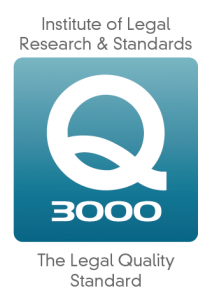Coroner’s Inquests
A Coroner’s Inquest is a public, fact-finding inquiry into deaths that are sudden, unexplained, violent, or occur in state custody. Its sole purpose is to establish who died and how, when, and where they died. It is not a trial and does not assign legal blame or liability.
When is an Inquest Required?
An investigation is mandatory if the cause of death is:
-
Unknown or unnatural (e.g., accidents, suicide).
-
Occurred during or shortly after surgery, medical procedures or childbirth.
-
Occurred while in detention (e.g., prison or police custody).
Our Role as Your Solicitors
Attending an inquest is often a difficult and stressful experience. We provide compassionate, expert legal representation to clients, including family members of the deceased or their Personal Representatives.
Our services include:
- Preparing You for the Inquest: Thoroughly reviewing the evidence and preparing you for the proceedings.
- Active Representation: Making legal submissions and examining witnesses on your behalf to ensure all relevant facts are brought to light.
- Gathering Evidence: Securing crucial evidence at this early stage. This evidence can be invaluable for any potential follow-up action, such as a civil claim, medical negligence claim, or the resolution of insurance claims (like life policies).
Our goal is to ensure a full and fair investigation, providing you with clarity and a strong foundation for any future legal steps.
Frequently Asked Questions
- What are the possible ‘Conclusions’ (Verdicts)?
The Coroner (or the jury, if applicable) will reach a Conclusion, which is a formal determination of the death. Common examples include Accident, Misadventure, Suicide, Natural Causes, or a detailed Narrative Conclusion.
- .Do I have to attend the inquest?
No, as a family member or interested person, you are not obliged to attend unless the Coroner has formally summoned you as a witness. However, many families choose to attend for clarity and closure.
- Can I ask questions at the hearing?
Yes, as an Interested Person, you or your legal representative have the right to question witnesses. This questioning must focus on the facts of who, when, where, and how the person died.
- Will I get a copy of the evidence?
Yes. As an Interested Person, you have a right to receive copies of the documents that the Coroner intends to use as evidence at the inquest, such as witness statements and medical reports.
- Will the inquest help with a civil claim?
Yes, indirectly. While the inquest doesn’t determine liability, the evidence gathered (witness statements, expert reports, Conclusion) can be extremely valuable and form the foundation of a later civil claim for compensation, such as medical negligence or fatal accident claims.


